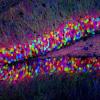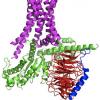I also found out cures from when sleep out too much.
Racetams, seems to fix the impairment and depressed mood from this type of situation, particulary Piracetam seems to be superior (tried Aniceratam and Noopept)
Another way to fix is with exercise, if I feel out of sync, a good 25mn run in treadmill fixes it.
Regular treadmill exercise prevents sleep deprivation-induced impairment of hippocampal-dependent memory and synaptic plasticityABSTRACT
Study Objectives: Evidence suggests that regular exercise can protect against learning and memory impairment in the presence of insults such as stroke and neurodegeneration. The purpose of this study was to determine the effect of regular exercise on hippocampus-dependent learning and memory impairment associated with sleep deprivation.
Experimental Design: We investigated the effects of 4 weeks of regular treadmill exercise on learning and memory impairment in 24 hour sleep-deprived rats. Sleep deprivation was accomplished using the columns-in-water model. We tested the effects of exercise and/or sleep deprivation using three approaches: the radial arm water maze (RAWM) task to test spatial learning and memory performance; electrophysiological recording in the Cornu Ammonis (CA1) and dentate gyrus (DG) areas of the hippocampus to measure synaptic plasticity; and western blot analysis to quantify the levels of key signaling molecules that are related to memory and synaptic plasticity.
Results: In the RAWM, regular exercise prevented the sleep deprivation-induced impairment of spatial learning, short-term memory, and early-phase long-term potentiation (E-LTP) in both CA1 and DG areas. In correlation, exercise prevented the sleep deprivation-associated decrease in basal levels of phosphorylated and total calcium/calmodulin-dependent protein kinase II (P/total-CaMKII) and brain-derived neurotrophic factor (BDNF). High frequency stimulation (HFS), which increased the P-CaMKII and BDNF levels in normal animals, did not change these levels in sleep-deprived rats but did increase levels of the phosphatase calcineurin. In contrast, exercise increased BDNF and P-CaMKII levels in exercised/sleep-deprived rats, probably by preventing increases in calcineurin levels, thus maintaining appropriate P-CaMKII levels. Regular exercise also prevented the sleep deprivation-induced impairment of long-term memory and late-phase LTP. In correlation, exercise increased the basal levels of phosphorylated cAMP response element binding protein (P-CREB) and total-CREB as well as P/total- mitogen activated protein kinase (MAPK/ERK) in CA1 and DG areas of sleep-deprived rats. Also, exercise allowed multiple HFS to increase the levels of BDNF and P/total-CREB during L-LTP expression in sleep-deprived rats.
Conclusions: These findings suggest that sleep deprivation impairs both the CA1 and DG areas whereas exercise prevents this impairment. Regular exercise exerts a protective effect against sleep deprivation-induced impairment probably by inducing BDNF expression, which can positively modulate basal and/or stimulated levels of P-CaMKII, P-CREB, P-MAPK/ERK and calcineurin. As a result, exercise-induced BDNF could contribute to the restoration of hippocampus-dependent learning and memory as well as LTP in both CA1 and DG areas.
http://repositories....andle/10657/247
Edited by Redux, 05 April 2013 - 10:36 AM.






















































